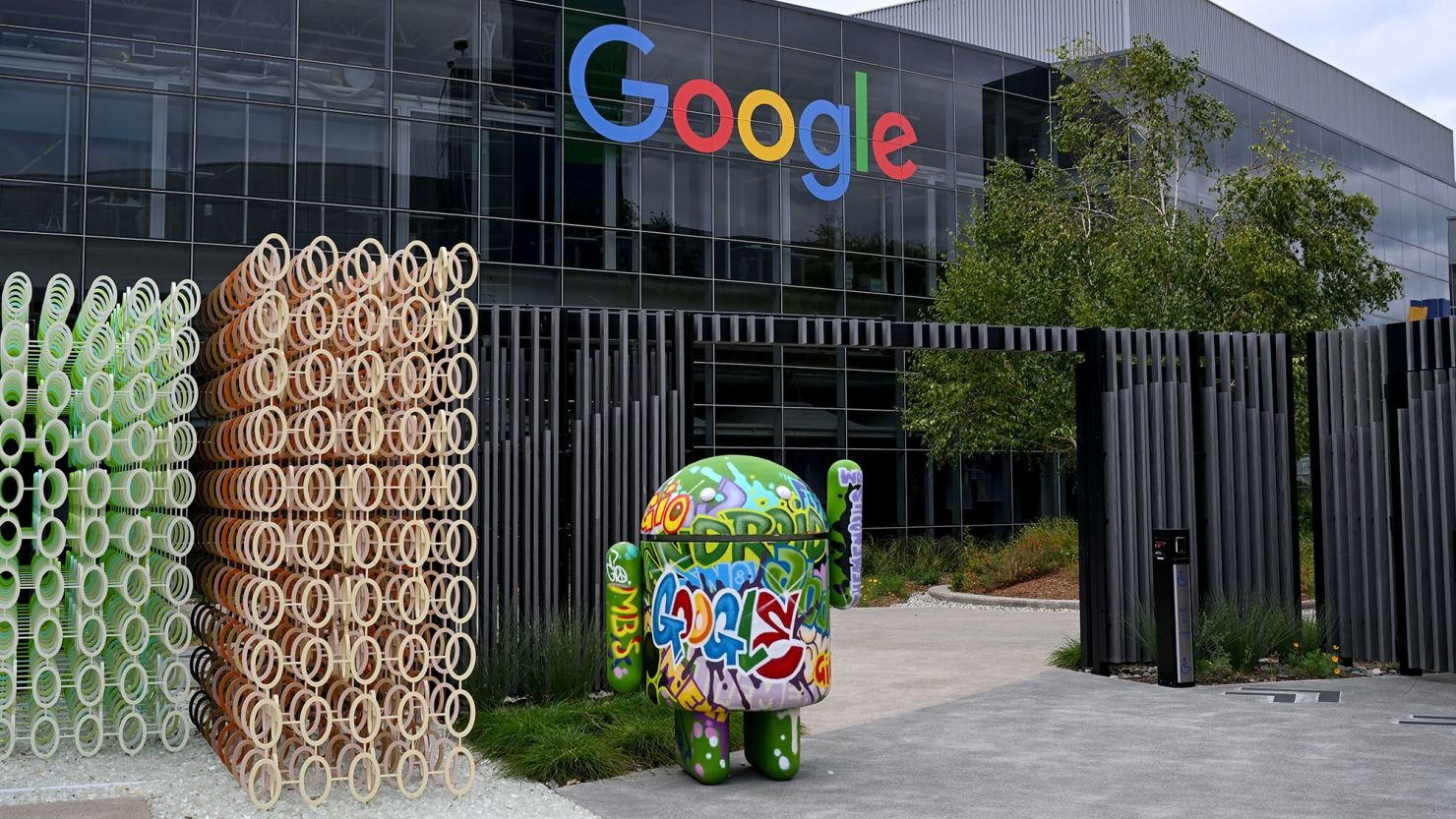Foundation of the EU Contest Fine
The European Association (EU) has laid out a powerful legitimate system for tending to contest issues, fundamentally to protect fair market rehearses. At the center of the EU’s opposition regulation are Articles 101 and 102 of the Deal on the Working of the European Association (TFEU), which preclude against cutthroat arrangements and predominant market places that might mutilate contest inside the inner market. The European Commission (EC), which goes about as the administrative power, is entrusted with implementing these arrangements to keep a level battleground for organizations across the part states.
For the situation including Google, the EC imposed a record fine of €1.49 billion (roughly $1.7 billion at that point) against the tech monster in Walk 2019 concerning its AdSense rehearses. The charges focused on the case that Google forced prohibitive provisions in agreements with outsider sites, keeping them from showing advertisements from Google’s rivals. This supposed direct upset market access for rival organizations as well as decreased contest in the web based publicizing area, which is critical for advancement and shopper decision.
The setting of the fine can be followed back to more extensive worries about Google’s significant strength in the web based promoting commercial center. The incorporated stages and administrations that Google offers raise huge contest worries, as they might prompt enemy of cutthroat practices. The ramifications of the EU’s choice stretch out past the monetary punishment; it highlights the continuous administrative examination looked by huge innovation organizations. The EU’s thorough implementation of its opposition regulations fills in as a useful example for partnerships working inside its ward, underscoring that resistance can prompt serious repercussions.
Understanding the subtleties of this legitimate scene is basic as it features the equilibrium the EU looks to strike between empowering development and checking hostile to cutthroat way of behaving in a quickly developing computerized economy.
Subtleties of Google’s Legitimate Test
Google’s legitimate test against the $1.7 billion fine forced by the European Association (EU) bases on a multi-layered guard system that stresses consistence with existing rivalry regulations. The organization’s legitimate delegates contended that Google’s publicizing rehearses are legal as well as advantageous to customers and the by and large advanced commercial center. They fought that the prohibitive measures forced by the EU neglect to represent the cutthroat elements present inside the internet promoting area, subsequently sabotaging the advancement driven by computerized stages.
The central issues raised by Google’s lawful group incorporated a careful investigation of the publicizing biological system and the contention that the organization’s lead advances rivalry as opposed to smothering it. Google stated that its practices upgrade shopper decision and work with a dynamic climate for promoters, which at last prompts lower costs and further developed administrations. Moreover, Google’s legal advisors featured that the EU’s understandings of rivalry regulation might be obsolete, given the fast advancement of computerized innovations and the internet based market scene.
Critical advancements arose during court procedures, where Google’s safeguard included powerful tributes from industry specialists who gave experiences into market conduct and contest. The timetable prompting the test included a progression of correspondences and exchanges among Google and EU controllers, coming full circle in the conventional allure against the powerful fine. Key hearings were held, which permitted the innovation goliath to put forth its viewpoint exhaustively, illustrating the more extensive ramifications of forcing such punishments on advanced stages.
Eventually, the European courts decided for Google, denoting an essential second in the continuous talk encompassing computerized rivalry. This triumph not just reduced the monetary weight originating from the fine yet additionally set a significant trend for the treatment of innovation firms under EU regulation. Subsequently, the ramifications of this administering might reverberate in ongoing evaluations of computerized stages, building up the requirement for nuanced administrative methodologies that mirror the intricacies of mechanical advancement.
Suggestions for the Tech Business
Google’s new outcome in upsetting a $1.7 billion fine from the European Association addresses a critical defining moment for the innovation business, particularly concerning contest regulation. The decision modifies the scene for Google as well as starts a trend for how administrative bodies might move toward other tech monsters later on. For industry specialists and lawful examiners, this result proposes a likely change in the EU’s eagerness to force heavy fines on strong innovation firms, which have frequently been investigated for their market predominance.
One of the most eminent ramifications of this choice is the probable reassessment of how contest regulations are authorized across the EU. As controllers gauge the legitimacy of their activities against tech organizations, this case flags a potential requirement for additional hearty supports in regards to cases of hostile to serious practices. The decision might encourage other tech firms to challenge administrative measures that they see as overextending, possibly prompting a more permissive administrative climate for computerized commercial centers.
Besides, this result brings up issues about the harmony among development and guideline. A more clear pathway for tech organizations to explore legitimate examination could cultivate a climate empowering development and speculation. Nonetheless, there is additionally worry that decreased administrative strain could take into account against serious practices to reemerge, at last influencing customer decision and market variety.
According to the viewpoint of controllers, this milestone case might require a reexamination of aggregate ways to deal with overseeing rivalry in the tech area. It could prompt more cooperative commitment among organizations and states, taking into account more custom-made and compelling guidelines. By and large, Google’s legitimate victory conveys profound ramifications that could reclassify cutthroat practices and administrative methodologies inside the innovation business into the indefinite future.
Responses from Google and the EU
Following the new lawful choice that upset a critical fine forced by the European Association, both Google and EU authorities have offered unmistakable thoughts on the ramifications of this decision. Google chiefs have praised the result, emphasizing their obligation to consistence with existing guidelines and cultivating development in the innovation area. They accentuated that the choice mirrors their continuous endeavors to guarantee straightforwardness and protect cutthroat practices inside their foundation. Google’s representative expressed, “We have consistently had confidence in the significance of contest, and this administering certifies our way to deal with giving an open and imaginative computerized climate.” This feeling is demonstrative of the organization’s essential plan to build up its situation as a forerunner in the computerized commercial center while tending to worries over monopolistic practices.
Interestingly, European specialists have communicated blended sentiments in regards to the court’s choice. While recognizing the result, they have emphasized their obligation to keeping up with hearty contest regulations to keep any single organization from overwhelming the market. EU Rivalry Chief voiced worries over the possible ramifications for future administrative structures, expressing that this administering could require a reconsideration of current contest strategies. The European Commission is probably going to investigate the chance of executing new measures that would empower them to screen and address monopolistic conduct all the more successfully in the tech business.
The public response has additionally been imperative, with different partners in the tech local area offering their viewpoints. Some industry examiners view the decision as a mishap for administrative advancement, while others contend that it further entangles the generally difficult scene of tech guidelines. In general, there is an arising agreement that both Google and the EU should keep exploring this complicated relationship, offsetting advancement with the basic of rivalry in the quickly developing computerized economy.

